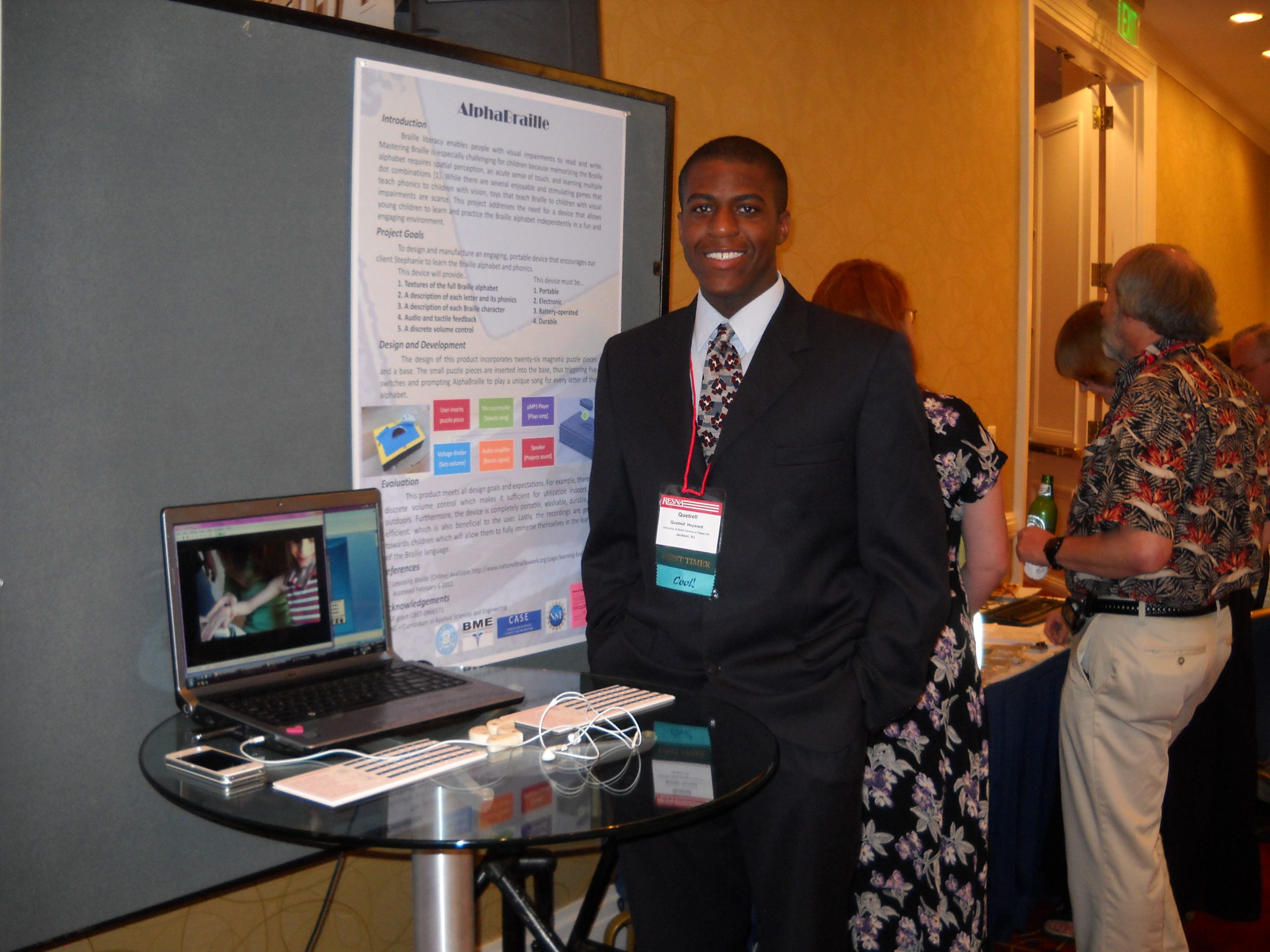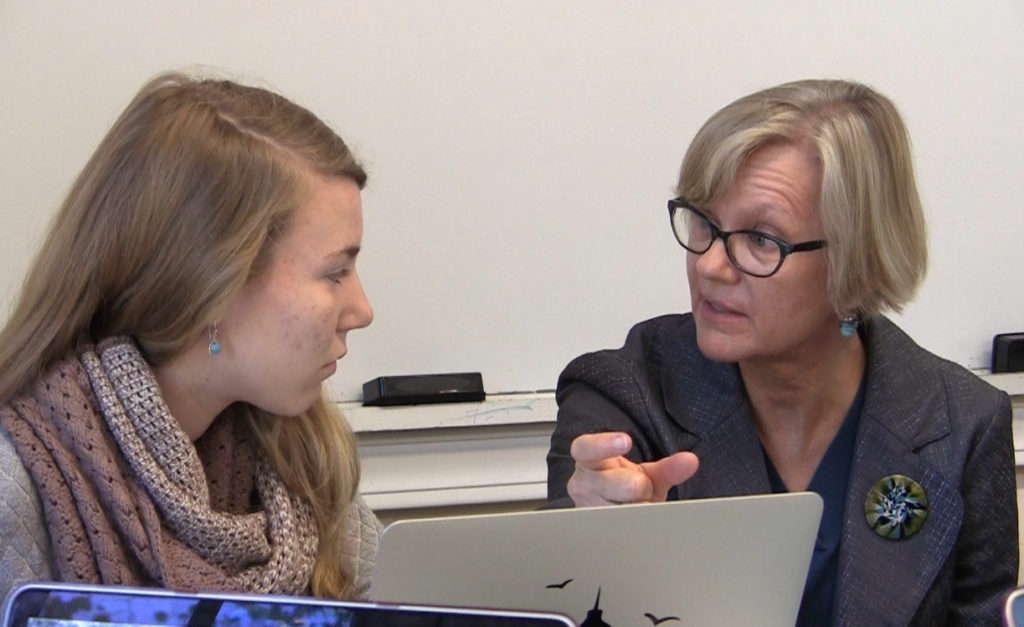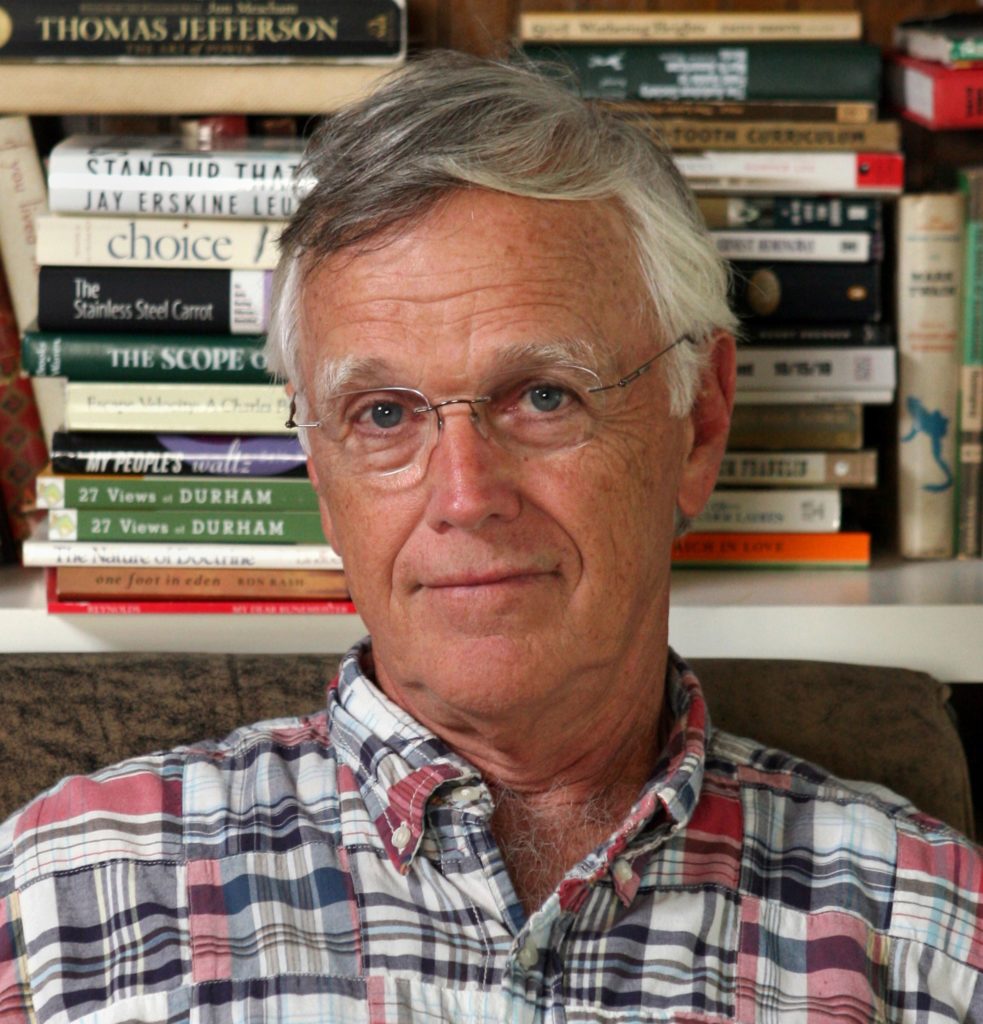
AlphaBraille, a game designed by UNC students to teach children how to recognize Braille letters, was awarded the “Technology Most Likely to Become Commercially Available” by the Rehabilitation Engineering & Assistive Technology Society of North America (RESNA).
The young designers are Seong-Hee Yoon, Lina Carballo and Quetrell Heyward, who recently graduated from UNC. The adviser for their senior design project was professor Richard Goldberg, director of undergraduate studies for the curriculum in applied sciences and engineering in the College of Arts and Sciences.
The award comes with a $500 cash prize and an invitation for one team member to spend three weeks at the Center for the Translation of Rehabilitation Engineering Advances and Technology (TREAT) in Lebanon, N.H., further developing the product. TREAT is the sponsor of this unique award, which was offered for the first time this year as part of the RESNA Student Design Competition.
For over 30 years, the RESNA Student Design Competition (SDC) has showcased creative and innovative assistive technology designs that help people with disabilities function more independently. This year, 23 universities from around the world submitted 35 designs. Entries were judged on originality, quality of design and usefulness to persons with disabilities. Ten semi-finalist teams were selected to attend the RESNA conference, where the students presented to a panel of judges. The judges selected five finalists, who were recognized at an awards ceremony.
“We received great feedback on our design from knowledgeable experts. From rehabilitaton engineers to teachers, everyone we talked to expressed their immense excitement for the development of our product as well as the vast potential it has to aid children with visual impairments who are in the early stages of learning the Braille alphabet,” said Yoon of the AlphaBraille team. “Winning the award and having the opportunity to work with professional product developers at the TREAT facilities is an incredible opportunity.”
“We find the energy and creativity that the student designers bring to the competition to be inspiring and motivating,” added Maureen Linden, co-chair of the RESNA Student Design Competition and a research engineer at Georgia Institute of Technology. “It was wonderful to see the range of entries this year, and we’re excited to introduce these talented students to the professional assistive technology community.”
Click here for more on the AlphaBraille project and a video showing how it works.



